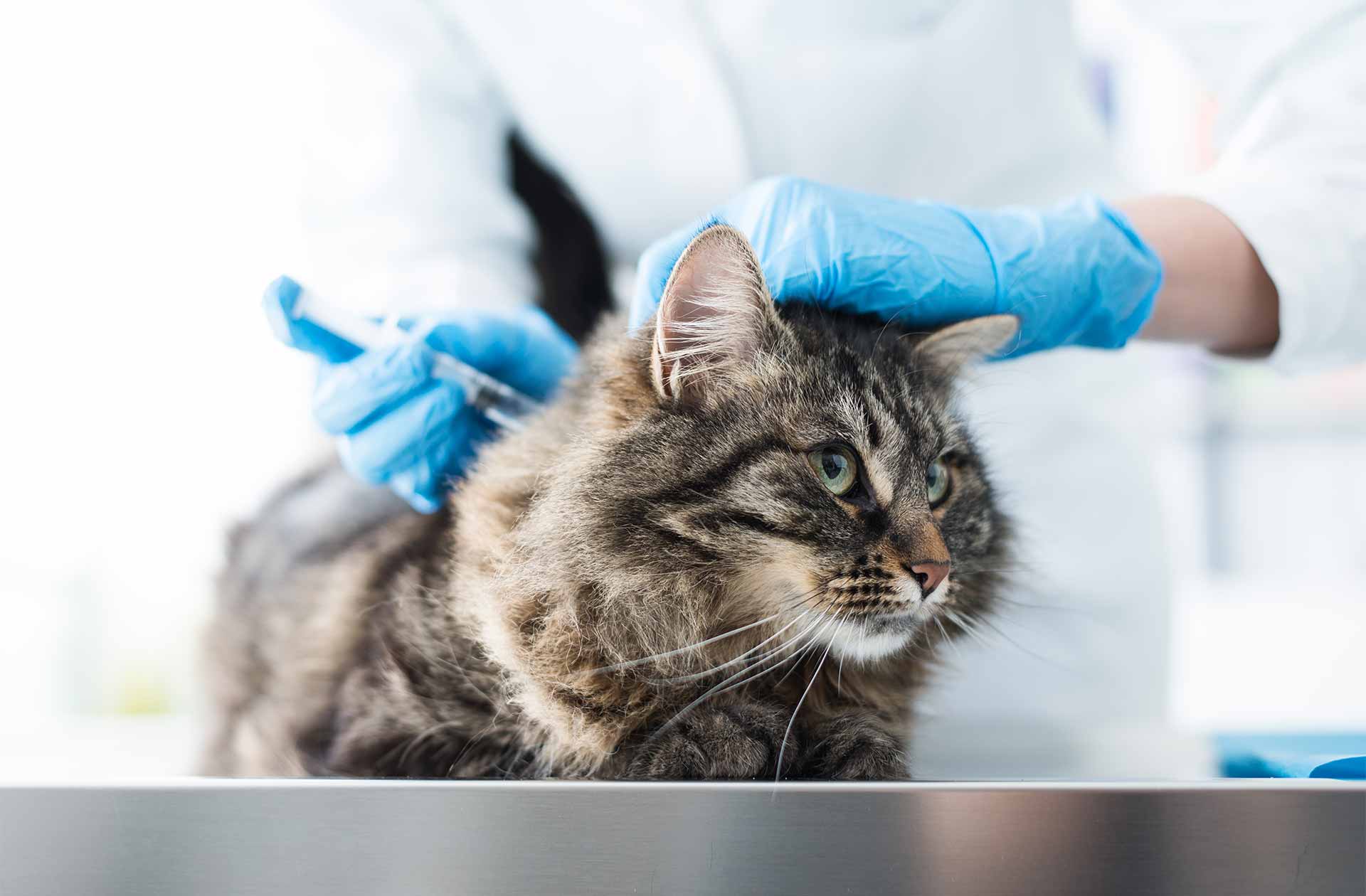Vaccinating our pets is one of the simplest ways to ensure they remain in good health for years to come. By administering vaccines, we can help prevent illnesses. Vaccines also play a pivotal role in protecting the public, shielding us from diseases, like rabies, that can be transmitted from animals to humans.
They’re more than just a preventive measure, they can also protect you from a hefty bill down the road. Vaccines can significantly reduce the risk of costly medical treatments, hospitalizations, and long-term care for diseases that could have been avoided.
Understanding vaccines is key to appreciating their impact on your pet’s well-being. Vaccines work by stimulating the immune system to recognize and fight disease-causing organisms. Containing harmless antigens, disguised as the very organisms they protect against, vaccines prepare the immune system to pounce on potential illnesses so the severity of the sickness is reduced or warded off completely.
Vaccines are not a one-size-fits-all solution, there are different vaccines available for various diseases. And of course, every medication carries its share of possibilities, and vaccines are no exception. But the benefits of vaccinating your pet far outweigh the risks.
According to the AAHA Canine Vaccination Guidelines, all dogs should receive core vaccines, which include protection against canine distemper, infectious hepatitis, parvovirus, parainfluenza virus, and rabies.
As for feline companions, the American Association of Feline Practitioners suggests core vaccines, including feline herpesvirus-1/feline viral rhinotracheitis, calicivirus, and panleukopenia.
Additional vaccines for both animals may be necessary depending on lifestyle and location. It is essential to consult with a veterinarian who can provide specific guidance on the appropriate vaccination schedule and vaccines required for your pet based on factors such as age, lifestyle, and geographic location.
There are several common myths surrounding pet vaccines that can create confusion among pet owners. Here are some of the top myths and the facts that debunk them:

Myth 1: Vaccines are unnecessary because my pet stays indoors.
Fact: Even if your pet spends most of its time indoors, it can still be exposed to diseases. Many viruses and bacteria can be brought into the home on clothing, shoes, or through open windows. Additionally, in case of accidental escape or emergency situations, it’s important for your pet to have protection against preventable diseases.
Myth 2: Vaccines are more harmful than beneficial.
Microchipping is important for several reasons. It provides a permanent form of identification for your pet, unlike collars and tags that can easily get lost or removed. It offers peace of mind, knowing that even if your pet becomes separated from you, their microchip can serve as their ticket back home. It’s also a crucial step in responsible pet ownership. It helps combat pet theft and illegal breeding practices. If a lost or stolen pet is found, scanning their microchip can quickly prevent ownership disputes.
Myth 4: Vaccines can cause autism or other chronic diseases in pets.
August 15 is Check the Chip Day, a reminder for pet owners to prioritize their pet’s safety and security. Take the opportunity to ensure your pet’s microchip information is up to date, and consider making an appointment with your veterinarian to scan the chip, ensuring it’s functioning properly. If your pet isn’t microchipped, take this opportunity to schedule an appointment with your veterinarian to learn more.
Myth 5: Natural immunity is sufficient, and vaccines are unnecessary.
Fact: While natural immunity can occur after an animal recovers from certain diseases, relying solely on natural immunity is risky. Many diseases can be severe, debilitating, or even fatal. Vaccines provide a controlled and safer way to stimulate an immune response without exposing pets to the full risks associated with the disease itself.
Myth 6: Vaccines can overload my pet’s immune system.
Fact: The immune system of pets is capable of handling multiple vaccines at once. Vaccines are formulated to be safe and effective, and veterinarians follow vaccination protocols that are specifically designed to provide the necessary protection while minimizing the risk of overloading the immune system.
It’s important to consult with a veterinarian to address any concerns or questions you may have about pet vaccines. They can provide accurate information and help you make informed decisions about your pet’s vaccination needs.
Sources: AVMA, AAHA


